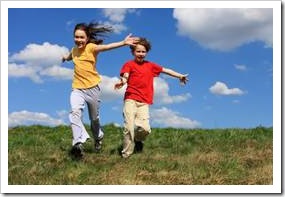Kids hold the truth that was given to them as a manual at birth.
Over years, chapters are erased and what they know naturally starts to fade.
Stay around kids. They will remind you what you have known all along
– Ronit Baras
I have always said kids know something we adults do not. I guess this is the reason I have made a choice to be around them and discover who I was and the purpose of my life. I do not think it is a coincidence I teach happiness, run motivation workshops, write personal growth books, coach and blog on family matters. All that I teach, I have learned from kids.
Life without a manual
 Although happiness is defined differently by different people, everyone wants to be happy. Happiness is a state of achievement, success and emotional comfort. It is a state of mind that we are all programmed at birth to seek. In life, we need to operate this complex machine called “me”, so we need a manual.
Although happiness is defined differently by different people, everyone wants to be happy. Happiness is a state of achievement, success and emotional comfort. It is a state of mind that we are all programmed at birth to seek. In life, we need to operate this complex machine called “me”, so we need a manual.
I believe we are all given the ability to be happy at birth and what you would call a “manual”, I would call “instinct”. Watch kids to understand how dedicated they are to being happy. They will do absolutely anything to make themselves happy. They will cry, nag, scream and climb the kitchen counter to get to the cookie jar. They do not mind getting dirty or being messy when they play. If it makes them happy, it is good. Watch them and you will see that even before they can read, they know Chapter 1 of the life manual – Happiness is the ultimate purpose.
Unfortunately, this natural ability fades over the years, as if we forget the real purpose of our existence. At the age of 6, the decline of this force already begins. The teen years are the beginning of its end and too many adults have only vague memories of what happiness used to be.
Happiness is a choice!
 When Gal and I had to choose our main company philosophy, we picked “happiness is a choice”, because it really sums up what all of our programs do – giving people the ability to choose to be happy and pursue happiness, just as kids do every second of their time. It was appealing to us because it matched my “Success Experience Theory”, which explains overall learning success as the accumulation of success experiences. When we choose to look at life in a positive way, we experience success and the more successful we are, the happier we are. This brings us Chapter 2 of the life manual – To fill up our happiness tank, we need to actively choose happiness.
When Gal and I had to choose our main company philosophy, we picked “happiness is a choice”, because it really sums up what all of our programs do – giving people the ability to choose to be happy and pursue happiness, just as kids do every second of their time. It was appealing to us because it matched my “Success Experience Theory”, which explains overall learning success as the accumulation of success experiences. When we choose to look at life in a positive way, we experience success and the more successful we are, the happier we are. This brings us Chapter 2 of the life manual – To fill up our happiness tank, we need to actively choose happiness.
Kids have no problem knowing what will make them happy. They may find it hard to say or express it, but everything they do is targeted towards making them happy. Kids have a very easy definition of “happiness” – it is whatever brings me joy, comfort, pleasure and satisfaction NOW and you can recognize how their life is mostly designed to fulfill this need of happiness. On the other hand, when I give grownups the task of making a list of things that make them happy, it is very hard for them, because they know what they do not want more than what they want.
Grownups often criticize kids’ definition of happiness, but in fact, kids’ definition is very simple and clear and gives them many opportunities to experience happiness. It is not easy to convince a kid that doing homework will make him happy, because he knows that he is following Mom or Dad’s definition of happiness and not his own. From the second they are born, kids practice Chapter 3 of the life manual – Define happiness. Happiness is a present state of mind – I do everything to make Mommy to hold me NOW or have a candy NOW or watch television NOW because it makes me happy.
 Through fear and frustrating experiences, people learn to avoid pain rather than seeking happiness. Kids do not worry about the consequences as much as grownups do. Yes, I know, it gets them into trouble many times, but adults, with the ability to think of the consequences, do not get into less trouble, do they? Kids are very much present-oriented creatures. They do not linger in the past as much as grownups. They are flexible and build bridges over many failures. They understand Chapter 4 of the life manual – Focus on what you want, not on what you don’t want.
Through fear and frustrating experiences, people learn to avoid pain rather than seeking happiness. Kids do not worry about the consequences as much as grownups do. Yes, I know, it gets them into trouble many times, but adults, with the ability to think of the consequences, do not get into less trouble, do they? Kids are very much present-oriented creatures. They do not linger in the past as much as grownups. They are flexible and build bridges over many failures. They understand Chapter 4 of the life manual – Focus on what you want, not on what you don’t want.
Kids do not look for life to be easy, whereas adults look for an easier life continually. Adults want to have wonderful relationships without investing time and effort, they want to have money without working for it, they want to have lots of friends without having to be kind and thus, they miss the whole point sometimes. No one has ever said life is easy, but happiness is worth our efforts. I believe kids understand Chapter 5 of the life manual – I may have to work hard to reach the cookies on the top shelf, but they are worth the effort. Life is full of cookies waiting for you to get to them.
Because kids know happiness is worth their efforts, they do not give up easily. Kids do not stop trying to get what they want and obstacles do not put them off so easily. Have you ever seen a baby trying to get to a toy without the ability to crawl? If you have ever seen baby crocodiles, you would know that on their way somewhere, they will crawl on top of each other to get to their destination. Some may call it “ignoring everyone else”, but I would call it “being focused”. In a research on kids’ emotional intelligence, kids were given the task of building an impossible structure. The younger the kids were, the more attempts they made and the number of attempts declined down to 0 in teens. You could say young kids are more persistent. Kids live by Chapter 6 of the life manual – Problems and failures are temporary. I am focused! Problems are not stop signs, they are guidelines.
 I have found out that hanging around kids helps me remember how to be happy. The younger they are, the more able they are to attract happiness into their life and it is contagious. It is no coincidence that spending time with babies, doing nothing meaningful at all, makes people so happy.
I have found out that hanging around kids helps me remember how to be happy. The younger they are, the more able they are to attract happiness into their life and it is contagious. It is no coincidence that spending time with babies, doing nothing meaningful at all, makes people so happy.
Parents are lucky, because they can learn this from their kids. Teachers are lucky, because they can learn it from their young students (especially in early childhood education). If you want to re-learn what you once knew, spend some time with kids and watch them effortlessly follow an imaginary manual that they do not even know exists and let the magic happen to you too.
Be happy!
Ronit











